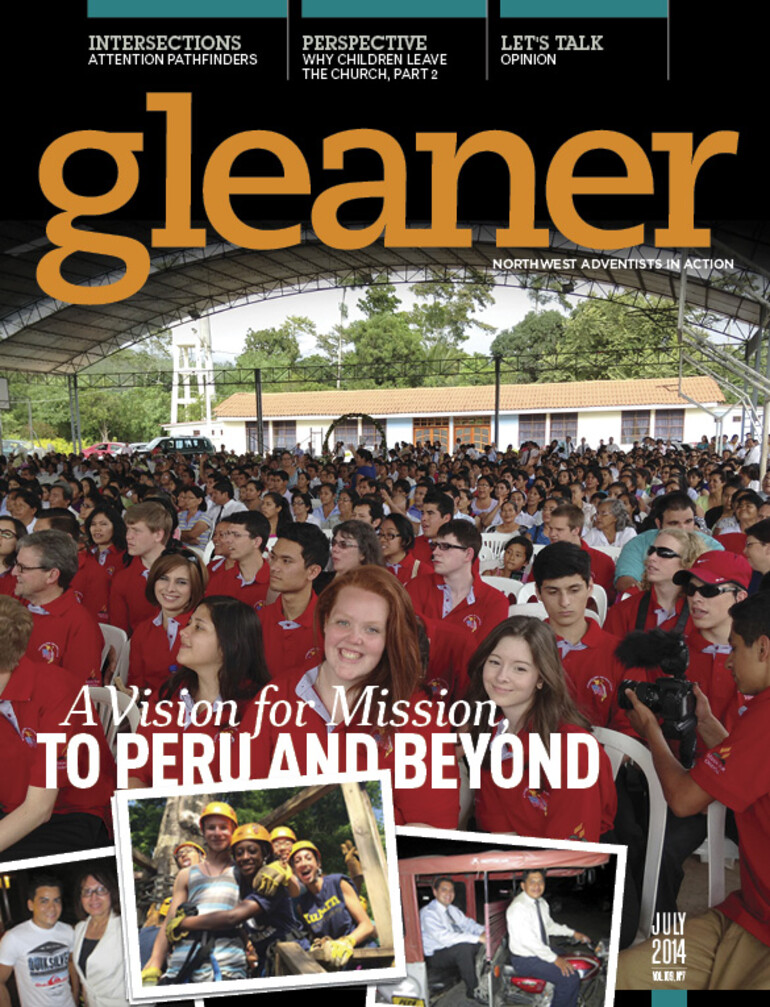We are all partial.
Partial to chocolate over vanilla, partial to football over baseball, partial to Big Franks over Little Links … you get the idea. We’re also partial to certain understandings of biblical text.
Recently, while preparing a sermon on Proverbs 31 for Mother’s Day, I came across an article by my Old Testament professor, Richard Davidson. The piece discussed whether or not Bathsheba was power-raped by David.1 How this came up while searching on Proverbs 31 Mother’s Day message is a subject for another column, but in my reading I found an interesting scholarly discrepancy.
In dealing with this delicate subject, Davidson points out what our tried-and-true Seventh-day Adventist Bible Commentary says, "There is no indication that David’s messengers took Bath-sheba by force. Bath-sheba was beautiful, and she was not beyond temptation. Possibly she was flattered by the overtures made to her by the king, and yielded herself to David without resistance."2
In other words, Bathsheba wanted it. How does that feel to you? As a father of three girls, I know how it feels to me. But isn’t this an ADVENTIST book? Do we really have one of our most important publications in denominational history advocating that in some cases of rape women want it?
Don’t worry — it gets better.
Davidson also points out that, in stark contrast to the Seventh-day Adventist Bible Commentary, Ellen White lays the blame for this disgusting event solely at David’s feet: "David was made to feel bitterly the fruits of wrongdoing. His sons acted over the sins of which he had been guilty. Amnon committed a great crime. Absalom revenged it by slaying him. Thus was David's sin brought continually to his mind, and he was made to feel the full weight of the injustice done to Uriah and Bathsheba."3
As time passed on, David's sin toward Bathsheba became known, and suspicion was excited that he had planned the death of Uriah.4
David had committed a grievous sin, toward both Uriah and Bathsheba, and he keenly felt this. But infinitely greater was his sin against God.5
The commentators, which reference Ellen White’s writings throughout, seem to have skipped past her observation (in addition to several cultural/syntactical/linguistic clues within the biblical text itself) and emphasized instead the Bathsheba-was-asking-for-it approach.
So … what do we do with this?
It’s easy to look back and make some value judgements about this commentary that has served as an aid for understanding the Bible since 1954 — but my guess is if we are still here 70 years from now people will have some special words for us regarding how we understand the Bible. While we await judgment from our future peers, a couple thoughts may help.
The first thought is that everyone has a context. We all have unique families, experiences, eras and geography in which we find our life being carried out — and that can shape the lens we look through. Gender perspectives in 1954 looked a lot different than 2014. I know this because I have quoted works such as The Total Woman and Fascinating Womanhood to my wife … and she has not responded warmly.
Contexts change however, and with changing contexts our perspectives change too. While God’s truth doesn’t change — as if He were playing a game of “Calvinball” with the principles for life — our understanding does. That idea is built into the preamble of our fundamental beliefs — that our understanding and articulation of truth will mature and change.
Secondly, this puts to rest the idea that somehow just because a publication is “Adventist” doesn’t mean it is completely true. That may sound scary, but every book is merely a human being grappling with his or her experience in life. Who on Earth, besides Jesus, has lived a completely true, authentic life? I know I haven’t, and I know you haven’t. This idea that we can only read a book within our own tradition is not a safe one — not only does it negate how God is working in the lives of others (remember God spoke to Nebuchadnezzar before Daniel), but it also gives others within our tradition a blank credibility check. The argument for reading only our own stuff amounts to nothing more than an excuse not to practice discernment.
It’s lazy and dangerous.
The film Hell and Mr. Fudge chronicles the story of Edward Fudge discovering the truth about hell and how God does not torture people forever. One of the most profound lines comes from an elderly believer, swinging on his porch, speaking to the young Edward on his theological journey. He says, “People are partial to the truth they already have."6 We all have the truth to which we are partial, which really means that we can only be partials.
The Bible tells us “iron sharpens iron” (Prov. 27:17). We need vigorous spiritual dialogue within ourselves, our own tradition and with others outside of our experience. It’s the only way we can become whole instead of remaining partials.
- Richard M. Davidson, "Did King David Rape Bathsheba," Journal of the Adventist Theological Society 17/2 (Autumn 2006): 81–95.
- F.D. Nichol, ed., The Seventh-day Adventist Bible Commentary, (Washington, D.C.: Review and Herald, 1954), 2:647.
- Ellen White, Spirit of Prophecy, 1:381.
- White, Patriarchs and Prophets, 720.
- White, Ibid.
- Hell and Mr. Fudge, dir. Jeff Wood, 2012.











